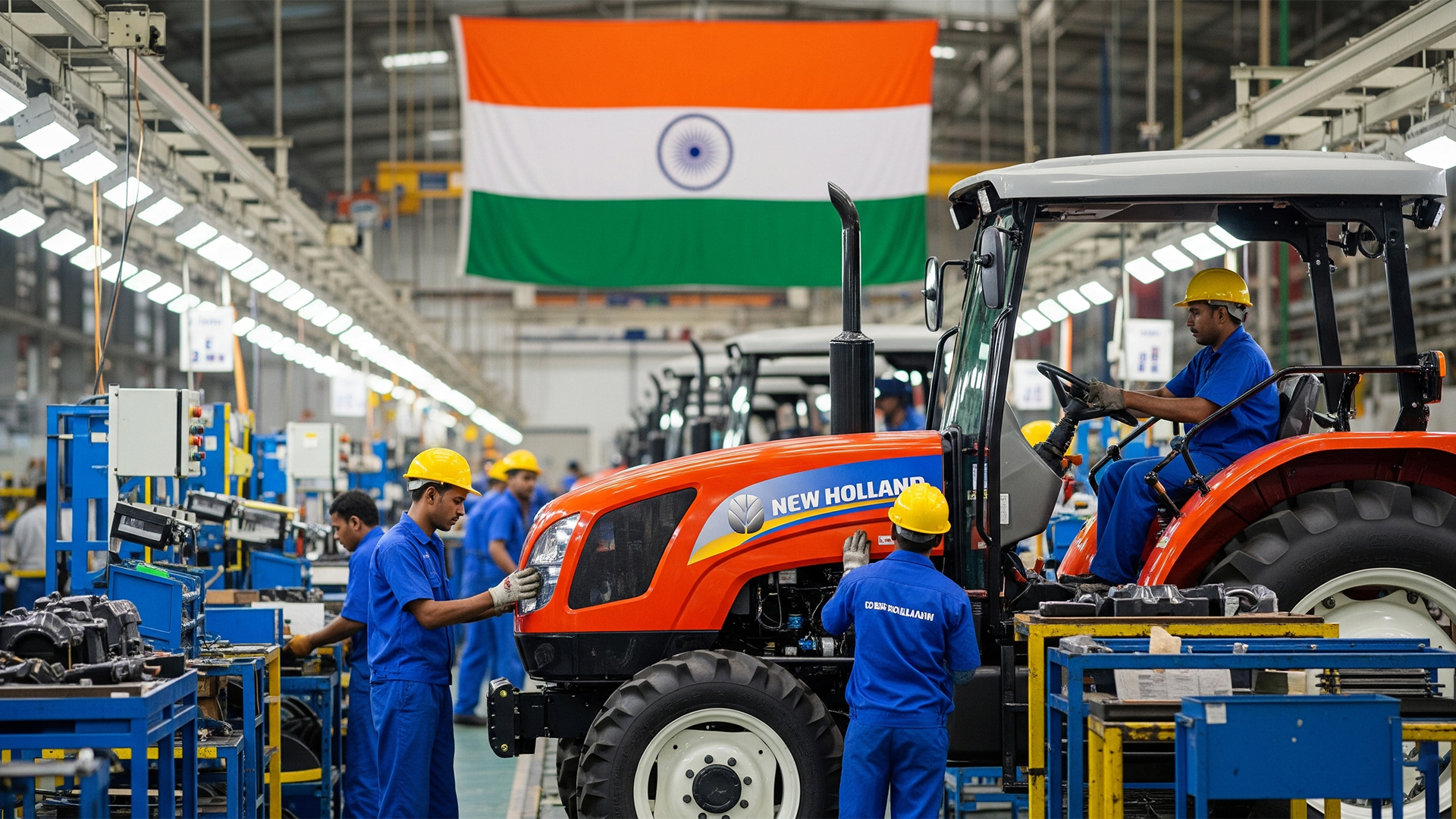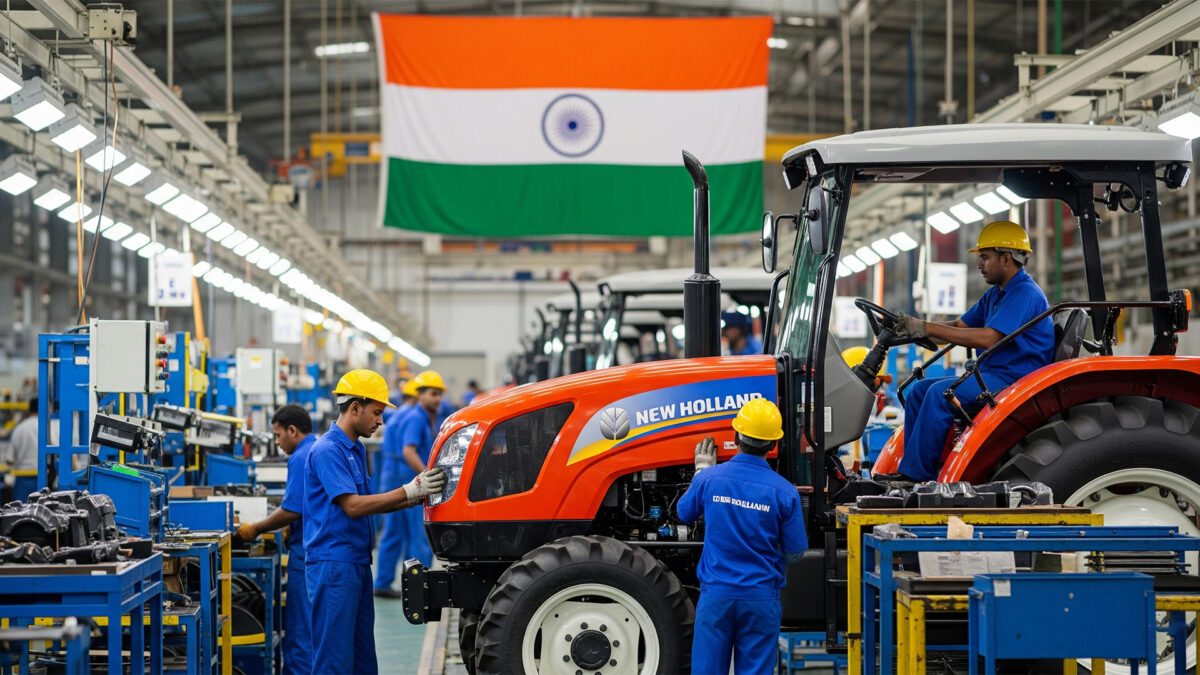
CNH Industrial, the global agri-machinery and construction equipment giant, has announced plans to set up a second manufacturing plant for its New Holland tractor brand in India. The move signals the company’s growing commitment to strengthening its presence in the world’s largest tractor market.
The new facility will be larger than CNH’s existing 60-acre plant in Greater Noida, which currently produces up to 60,000 tractors annually and can be scaled to 70,000 units. In 2024, the plant manufactured around 51,000 tractors, of which 37,000 were sold in India and the remaining 14,000 were exported to key international markets, including the United States and Europe.
Speaking about the company’s expansion strategy, CNH Industrial CEO Gerrit Marx stated that India is now a central hub not just for manufacturing, but also for innovation and product development. “We are looking to double our market share in the Indian tractor segment over the next five years,” Marx said, underscoring the strategic importance of the new plant.
India’s tractor market, which sees annual sales of nearly 900,000 units, remains highly competitive. Despite its global footprint, New Holland currently holds a modest share of this segment, dominated by domestic players.
CNH’s investment in India is backed by strong business fundamentals. Its India operations generate approximately $1 billion in annual revenue, with 65% contributed by agriculture equipment, 32% by construction machinery, and the remainder by financial services.
Besides its Greater Noida plant, CNH operates a combine harvester facility in Pune, a construction equipment plant in Pithampur (Madhya Pradesh), and a technology development center in Gurugram.
The upcoming plant is expected to cater to both domestic demand and international exports, further positioning India as a manufacturing and innovation hub in CNH’s global strategy. The location and investment details of the new facility are expected to be disclosed soon.


















